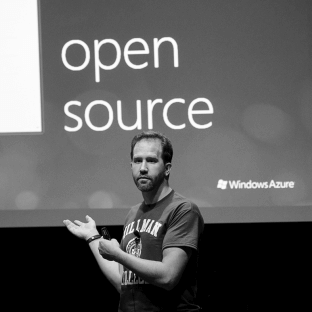How did you convince your company to let you work remotely?
Our company, Worldwide101, is 100% remote. It’s amazing. We already know happy employees make productive employees!
I was always my own boss during all my remote worker’s life… I always had an entrepreneurial spirit and was never really made to be an employee…
But for my clients, especially for my consultation business with sessions over the phone, I soon avoided telling them where I was unless they asked. I had realized that for many, it was putting a psychological barrier…like if they were worried they were disturbing me on my vacation, or like if it was too complicated…
I knew my current gig couldn’t support remote working but my field (marketing + technology) is definitely one that does. I took a leap of faith on the transition and the pieces fell into place. I started as a freelancer and now I’m working full-time for a totally remote startup called Skillcrush!
When I first started at Dell, there were practically no home workers. But the job I did, writing training materials, benefitted from me being isolated. I had a very understanding boss in the UK who was prepared to let me work remotely if I would come work for him. I pretty much said, “You can hire me but I’ll be living in Spain.” He agreed, and then made it easy for me. I’m very grateful. At first, I actually pretended I was still in the UK as some people couldn’t get their heads around it. I’m thrilled it’s actually seen as good practice now.
I’m a freelancer, but I’ve spent most of my career working for companies that allow people to work from home. That said, if you’re having trouble convincing the boss to let you join our ranks, I’d mention that people who work from home tend to work more hours than those who work in an office. Employers get more out of (responsible) workers who work from home.
A little over 60% of the people at GitHub work remotely and the entire Documentation team is distributed. We work in different time zones and have different working hours!
Our entire company is virtual!
I quit and became my own boss.
Fortunately, I did not have to convince the company—remote work has been part of our culture and how we do business for more than 50 years. It’s a big part of how we’re able to operate on a global scale and provide a great workplace that supports employees’ work-life balance.
Where I did do some convincing was in helping obtain approvals to finalize a global work-from-home policy in 2014. This massive undertaking to standardize how remote work is managed across our footprint of more than 180 countries required the buy-in of many teams, from leadership and HR to finance, legal, and IT. Today, the policy applies to our global workforce of more than 131,000 employees who are supported to work from home as needed. In the U.S. alone, approximately 8,000 employees form our Virtual Office program, working remotely 100 percent of the time.
Through 1:1 conversations, I prepared a business case based on my ability to be more productive if I could spare myself the lengthy commute and the feasibility of the remote working option based on similar departments in the company that had already implemented the option. In fact, at Anthem there is a policy that guides associates through the process of requesting and implementing flexible arrangements such as telecommuting.
When I worked from home in my corporate job they loved that I’d work instead of calling in sick, so luckily, no, I didn’t have to convince them.
Anne and I both quit our jobs (both giving our companies 3-6 months’ notice). It turns out, our bosses were so excited for our journey, bordering on extreme jealousy, and in both of our cases, they wished us luck and asked us back in the event when we returned.
The company has been remote from day 1, and the remote culture is totally built in.
Just pushed and pushed, while trying to provide as much value as possible. Built robots, made roomba cams, tried portals, showed I was dedicated to solving the remote issue.
As a self-employed worker, I had to convince myself that freelancing was a viable option. I spent quite a bit of time marketing to companies and leveraging my skill set. My biggest challenge was believing that I could pull it off. Once I got over the fear, it was easier to progress.
It was a fairly natural progression. Even when we had an office, it was so small and removed from the company’s main office that it was a lot like working from home. I kept slippers under my desk, and would bring my cats to work once in awhile. Eventually it just came down to numbers. There were two of us in an office—and most of the time we were not both there—and we didn’t even work on the same products. It no longer made sense to pay rent for that space.
I’m a self-employed consultant so that was never an issue.
















